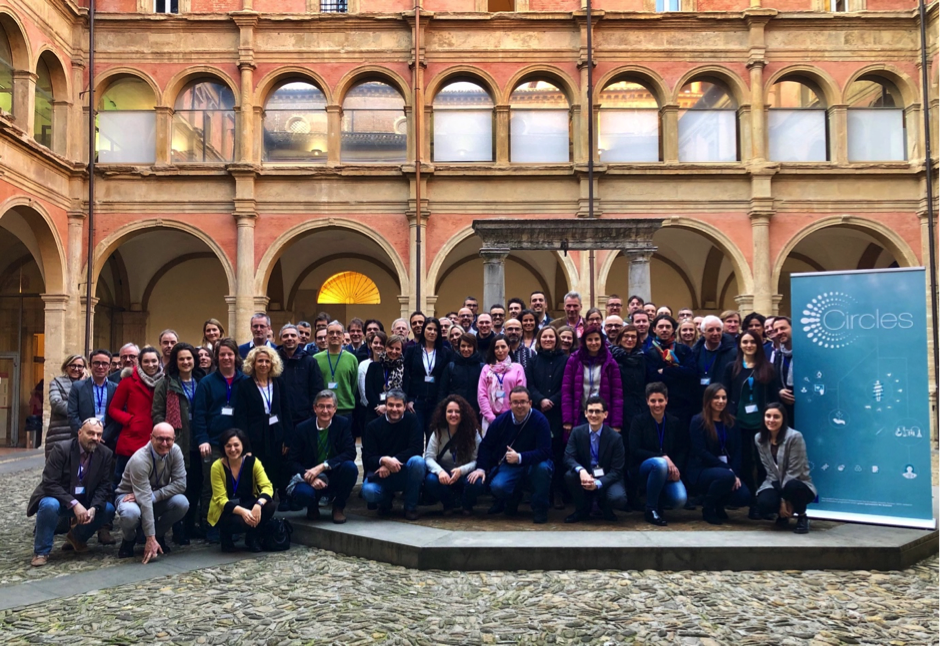Microbes offer an untapped potential and could be the key to a better and healthier living. Yet, research and innovation developments on microbiomes remain scarce. To challenge the state of play, the European Union has made the development of innovative applications on microbiomes a priority. In 2018, the EU is providing four consortia more than €40 million to develop new applications which could enhance the sustainability of our food systems and our health.
CIRCLES is one of these projects, in which LCSB’s Associate Professor Paul Wilmes, is responsible for the generation and analysis of metagenomic data from a variety of microbial reservoirs (e.g., soil or waste). These reservoirs will be monitored for antimicrobial resistance occurrence, transmission and evolution, which represent important aspects in the context of sustainable food systems.
Microbes, microbiota, microbiomes…?
Plants, animals and humans live in symbiosis with hundreds of billions of microbes. In our human body, microbes outnumber our cells by 1.3 times and can be found in every corner, especially in the gut. This population of micro-organisms comprising bacteria, viruses, fungi, single-cell organisms and microbes living in and around living things is called the microbiota. The genetic material present in all these micro-organisms forms the microbiome. In other words, microbiomes are used to deduce the composition of the microbiota. Enhancing our understanding of microbiomes and developing new food and feed applications stemming from microbiomes research could be instrumental to reaching sustainable food systems and improving our health. “We will apply our established wet-lab and dry-lab methodologies to resolve the taxonomic composition (“which microbes are there”?) and functional potential (“what can they do?”) of food-related environmental samples in order to study the environments’ impact on food production as well as food-workers microbiota, and thereby potentially on the workers’ and consumers’ health.”, says Paul Wilmes, Head of the Eco-Systems Biology group.
CIRCLES kicks-off
On 4-5 December 2018, more than 90 delegates from 30 organisations, coming from fourteen European countries, gathered in Bologna, Italy, for the kick-off meeting of CIRCLES.

Photo: CIRCLES project partners at the kick-off meeting.
At this occasion, project partners met with a view to discussing the project objectives and planning its implementation in seven food farming sectors (tomatoes, spinach, poultry, swine, marine fishes, Atlantic salmon, sea breams). The event offered partners the occasion to grasp the ambitions of the European Union on microbiomes research while discussing key aspects of the activities in the seven food sectors such as the development of standardized protocols and sampling procedures. “Being part of this important effort to better understand food-borne and food-processing-related microbiota is very exciting. Humans and animals are no longer considered as isolate entities but are integrated in a bigger and more representative context to eventually improve our understanding of food systems as part of national and international One Health efforts,” Paul Wilmes concludes.
The project is expected to last until 2023 and receives the strong commitment of its consortium, and a supporting Coordination and Support Action project, MicrobiomeSupport.
Future updates will be shared on the project website as of March 2019 on http://circlesproject.eu. In the meantime, stay tuned via the twitter hashtag #CIRCLESEU.
Contacts
Coordinator
Communications
University of Bologna
Hague Corporate Affairs
Marco Candela
Quentin Galland
marco.candela@unibo.it
galland@hague.company
